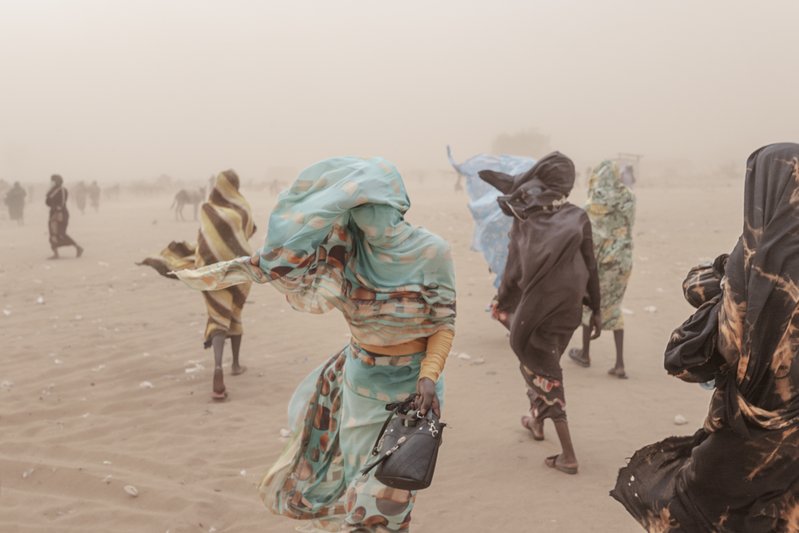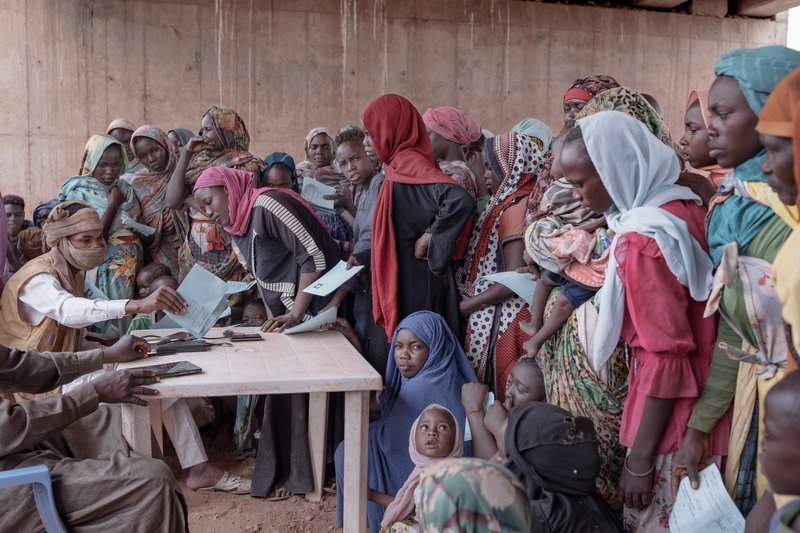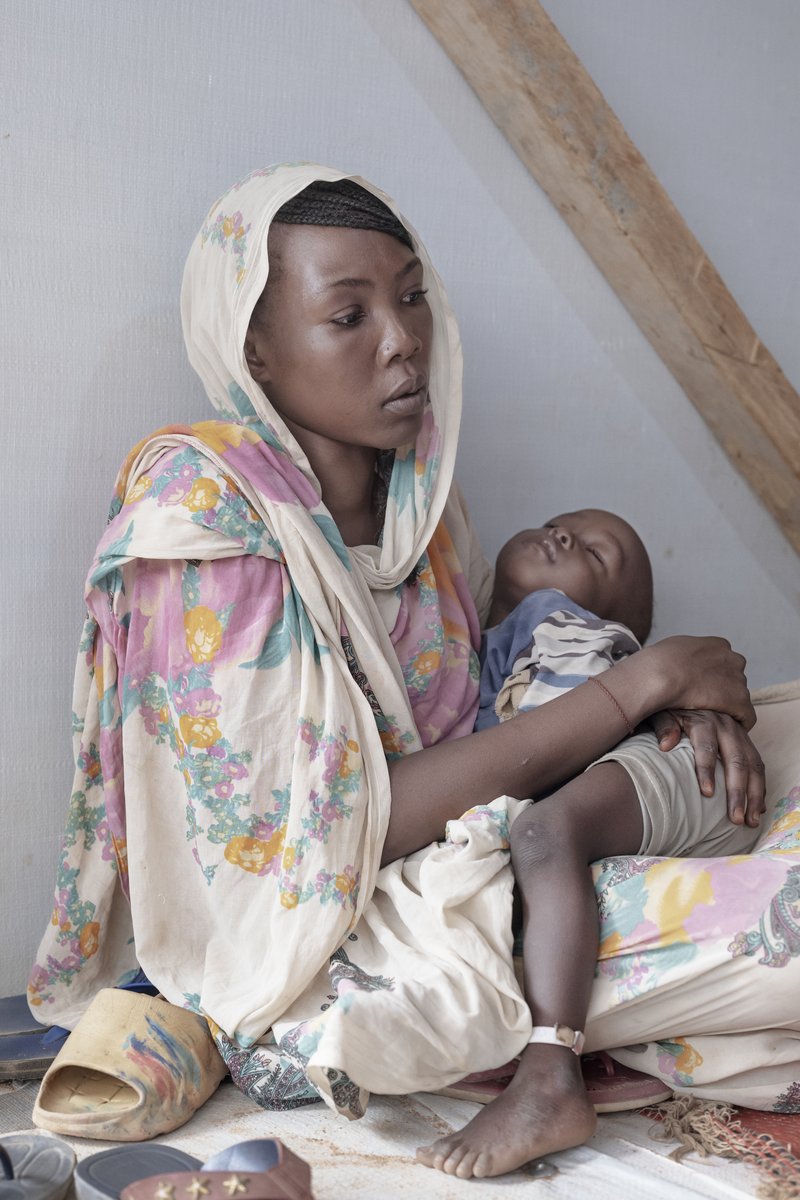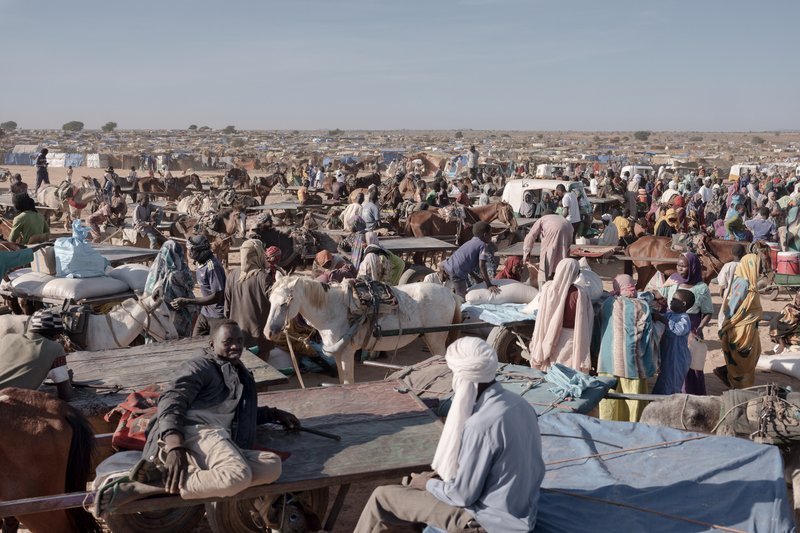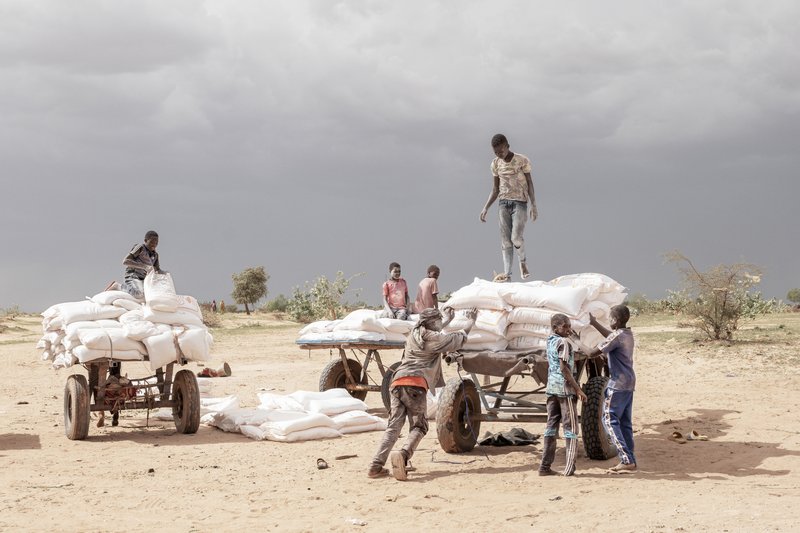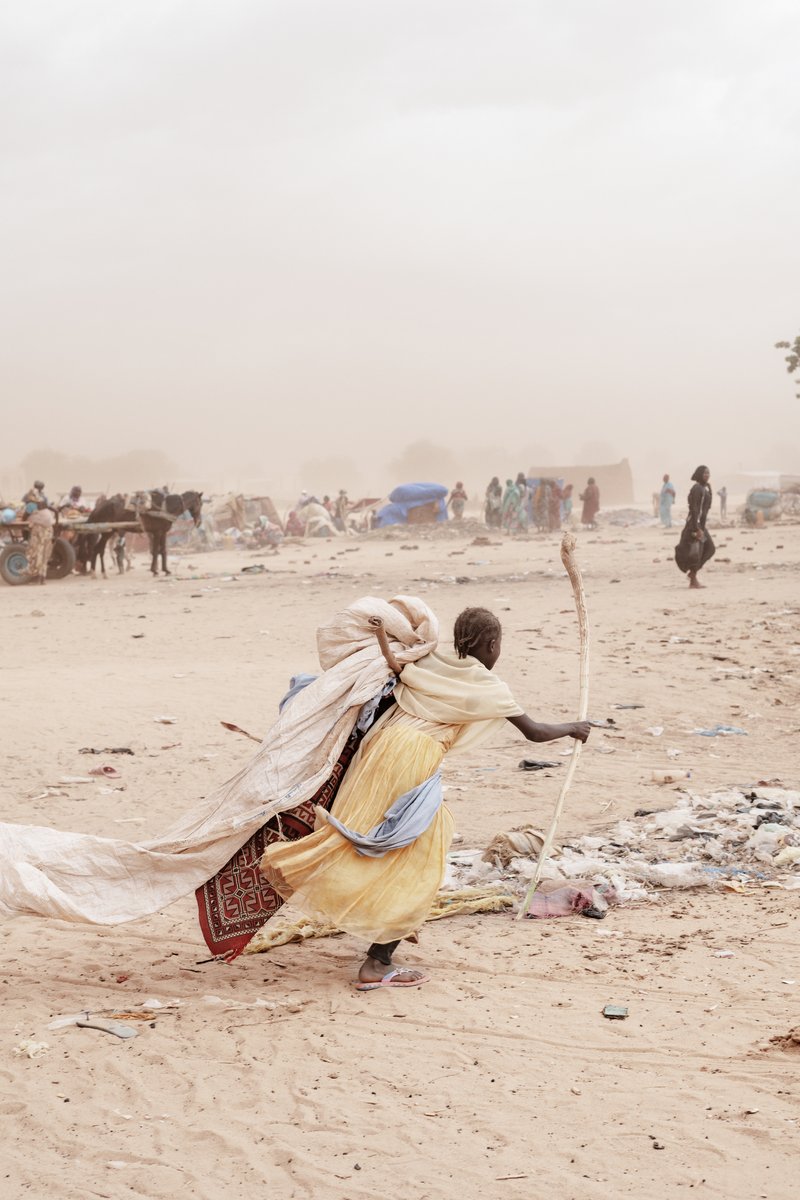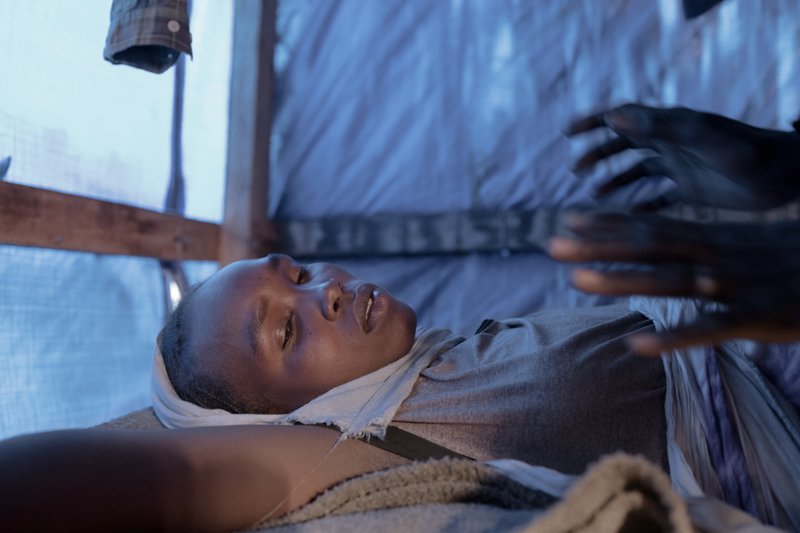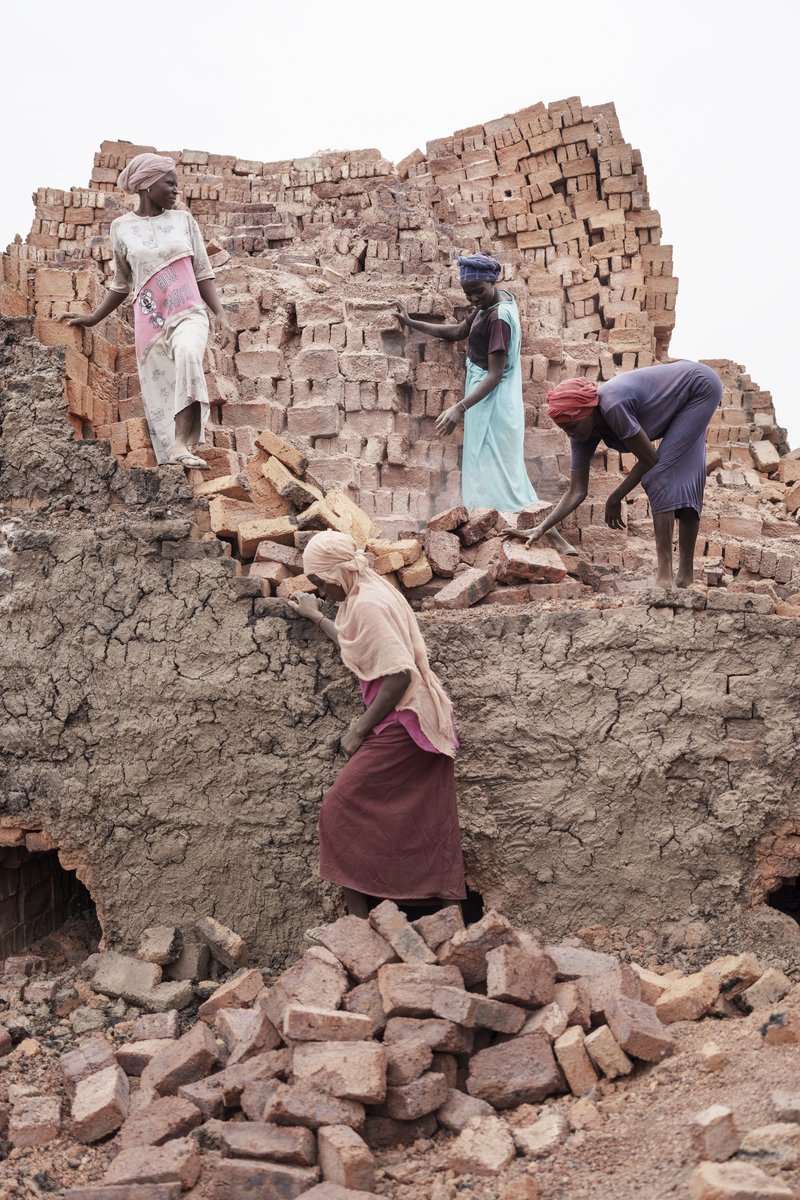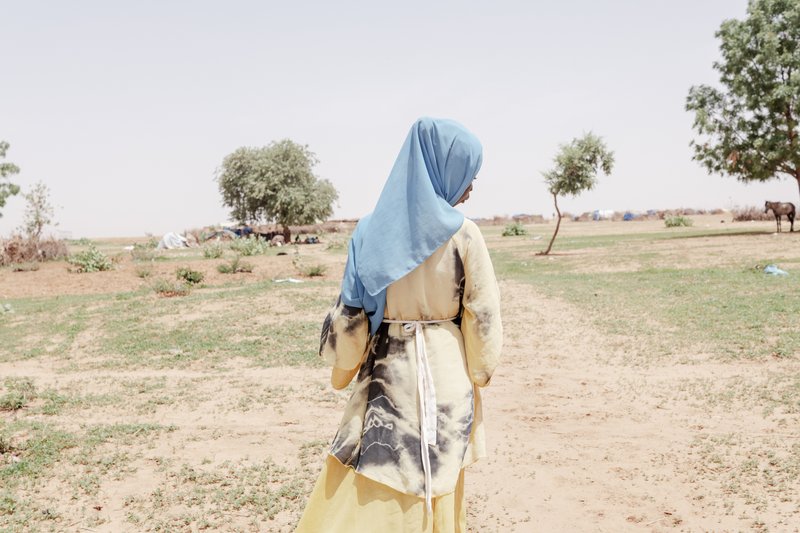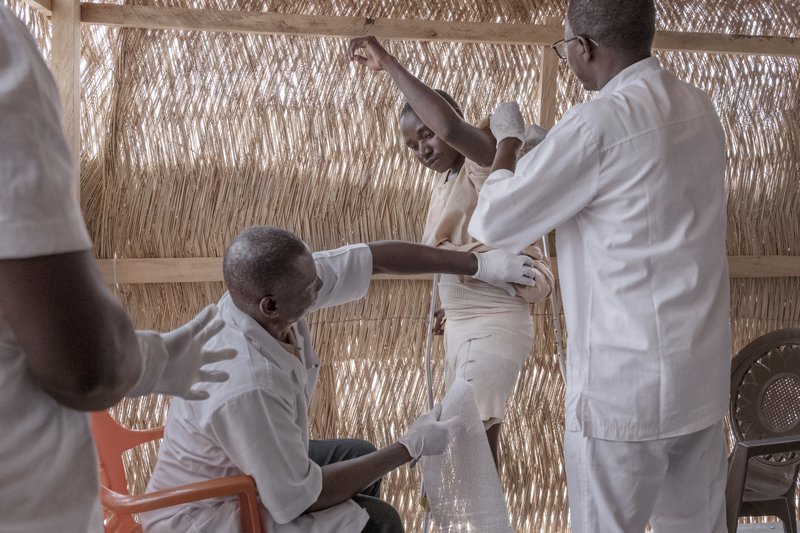Award of Excellence: Humanitarian Emergency
A Humanitarian Emergency
Women cover themselves with shawls while a sandstorm ravages the Adré refugee camp. Without proper sanitation and open defecation as a common practice, the wind raises and scatters waste across the camp. Sudan's civil war has unleashed a tide of despair, driving over 12 million souls from their homes, uprooting lives, and fracturing families. Since April 2023, more than 2 million people have sought refuge beyond its borders. Chad—a land already burdened by extreme poverty and internal conflicts—opened its arms to over 800,000 Sudanese refugees. Many had already fled to Chad during the harrowing Darfur conflict of 2003 and 2004, carrying the weight of the past terrors spread by the Janjaweed - the "Devils on horseback." The militia killed over 300.000 people between 2003 and 2005. The United Nations described it as the "world's worst humanitarian crisis" first in 2004, then in 2024. Since the resurgence of violence the past year, the once-bustling town of Adré has transformed into a sprawling informal camp, sheltering a staggering 300,000 displaced people. In other border towns, older camps expanded to receive the newly arrived. There, amid the sweltering heat and swirls of dust, refugees construct makeshift shelters from whatever materials they can find—branches and the shawls once worn by women now serve as fragile barriers against the harsh environment. The struggle for survival is palpable, with insufficient water, food, and firewood to respond to the population's needs. Sanitation is inadequate, and open defecation threatens to taint the very resources they rely on for survival, creating a ticking time bomb of health crises. The World Food Programme (WFP), facing a relentless influx of new arrivals in the overcrowded camps along the Chadian side of the border, has been forced to make painful cuts to rations, suspending, in April, assistance for 1.2 million Sudanese, including refugees. Between June and July, it reduced supplies from 16.95 kg to a mere 14.1 kilograms per person per month. This emergency, compounded by the looming specter of a continued genocide against the Darfur population, deepens with every passing day while most of the humanitarian response remains unfunded.
Nicolò Filippo Rosso
